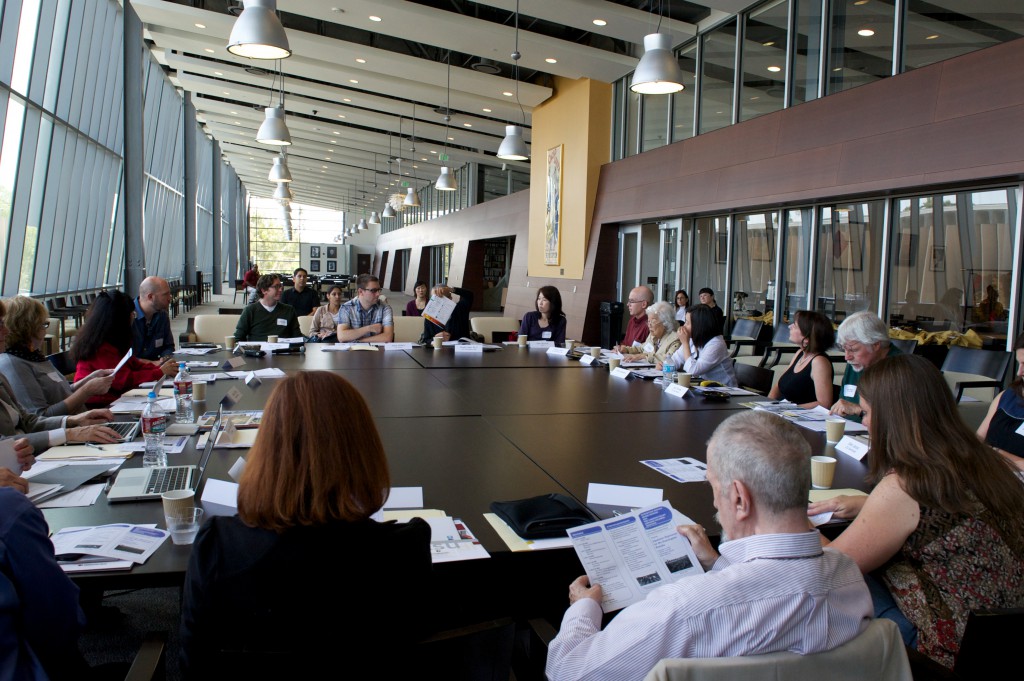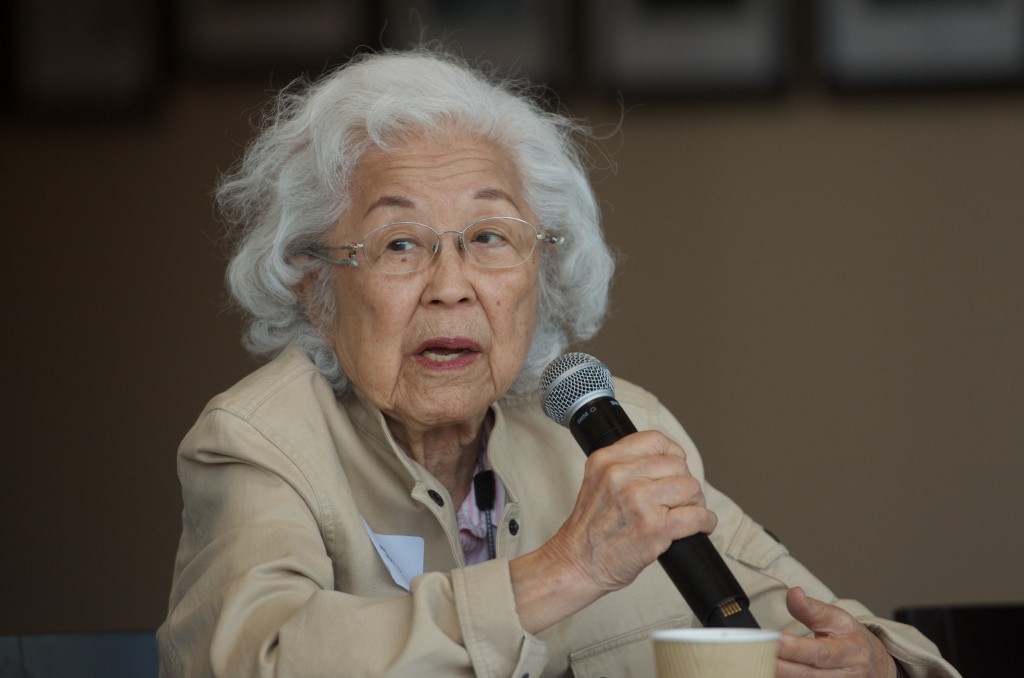
A two-day CSU planning grant symposium kicked off an ambitious and first-of-its-kind project to digitize and create a one-stop website for collections relating to the incarceration of Japanese Americans during World War II.
The event–hosted by the CSU Dominguez Hills Archives and Special Collections Department in collaboration with archives divisions at CSU Fresno, CSU Northridge, CSU Fullerton, CSU Sacramento and San Jose State–brought together numerous archivists, scholars and technical consultants to share their knowledge of Japanese American history and expectations on how a collaborative digital repository can serve students and scholars alike.
Currently, the CSU archival collections on what is generally known as Japanese American incarceration history are scattered throughout California and are too disparate to offer scholars a complete story or easy access. The project aims to bring worldwide access via a CSU-sponsored website to tell the striking local stories of ordinary people thrust into extraordinary circumstances.
“Uniting these unique archives that illuminate the wartime incarceration is long overdue,” said Roger Daniels, emeritus professor of history at the University of Cincinnati and a preeminent expert on immigration and the plight of Japanese Americans during WWII. “The increased knowledge that this collection will help to achieve will be important for generations to come.”
Over 120,000 Japanese Americans, many of whom were born and raised in the U.S., were forcefully relocated to camps between the years of 1941 and 1945 following a wave of anti-Asian xenophobia and fear during World War II.
Many of these citizens resided in California and were hastily required to drop out of school, uproot their families, and sell their homes and businesses at huge losses and were transported to unfinished internment camps in the desert areas of California, Arizona, Utah and Colorado, where they were held for years. These camps were eventually closed in 1945, with the formerly imprisoned Japanese Americans forced to rebuild their lives from scratch.
Earlier this year, the six CSU universities with CSU Dominguez Hills as the lead, received a $40,000 grant from the National Endowment for the Humanities (NEH) to create a digital archive of the CSU’s holdings on the subject. The campuses hold a combined total of approximately 300 linear feet of materials focusing on one of the most difficult periods of American history in regards to the treatment of minorities.
The collections include documentation that covers an enormous range of topics on Japanese American life in the U.S., including the California Alien Land Acts of 1913 and 1920, the War Relocation Authority (WRA), Japanese Peruvians, organizations that supported the community both during and after WWII, and letters, photographs and oral histories from internment camps such as Manzanar, Jerome, Gila River and many more.
According to Greg Williams, principal investigator for the grant and director of CSU Dominguez Hills’ Archives and Special Collections, the central purpose of the project is not only to improve access to the humanities collections about Japanese Americans, but also to present a model for planning and collaboration among the CSU archival and library community. There have been no previous CSU collaborative projects on this topic.
“It is important that this disastrous episode in American history not be forgotten and serve as a reminder of what prejudice is capable of in times of crisis,” Williams said. “As much as this is a national story, it is also a local story.”
He pointed out that many Japanese Americans who live near the campus were once either rounded up and sent to camps or have family members who were.
“It’s a very personal story and the campus archives serve as a conduit to many communities that want to tell their story,” Williams said, noting that CSU Dominguez Hills’ archives on the subject originate mostly from residents of the South Bay of Los Angeles County, where a sizable population of Japanese Americans continue to live. The campus’ own Japanese garden is a gift from local Japanese gardeners who planted and maintain the garden as part of their outreach and connection to the larger community.
In addition to Daniels, scholars from around the nation attended the symposium including Rita Takahashi, professor of social work at San Francisco State University; Art Hansen, emeritus professor of history at CSU Fullerton; Tom Ikeda, executive director of Densho: The Japanese American Legacy Project; Cherstein Lyon, professor of history at CSU San Bernardino; Martha Nakagawa, a journalist and researcher; Donald Hata, emeritus professor of history at CSU Dominguez Hills; and Aiko Herzig-Yoshinaga, an independent researcher who was instrumental in the redress movement by discovering critical evidence of premeditated governmental misconduct during the war.
“Making this collection available online is a good step toward informing more people about what happened,” Herzig-Yoshinaga said. “I was only a senior in high school when I was taken away…it was just so arbitrary.”

She was held for three and a half years in several camps, including Manzanar, before she and her family were released. Now 90 years old, Herzig-Yoshinaga said that in the years following, she didn’t think too much about the “traumatic experience” that had befallen her until she was well into her 50s.
“My family and I were raised to respect authority, but eventually I started to feel that my rights had been deprived by having been picked up simply because of my ancestry,” she said. “It has bothered me a lot…It didn’t dawn on me until later that the government had really done us wrong.”
Speakers during the symposium emphasized how essential it is that future researchers have digital access to materials in order to weave a more nuanced record of the incarceration and how it challenged the constitutional rights of all Americans. This has become increasingly critical as the years pass, as less survivors are left to tell their stories firsthand.
While the full implementation will take at least two years to complete, Hata emphasized that it was important for future generations to have access to the information to keep from making the same mistakes.
“History repeats itself,” he said. “People need to learn the lessons of the past to understand why this shouldn’t happen again.”
For more information, contact the CSUDH Archives Department at (310) 243-3895 or visit http://archives.csudh.edu.